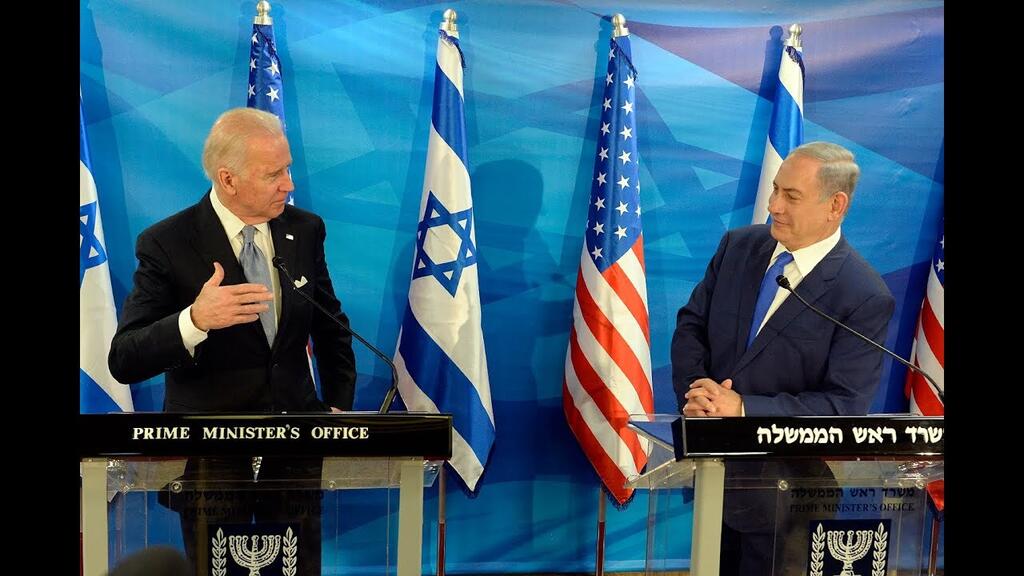Getting your Trinity Audio player ready...
So far, the phone has not rung. U.S. President Joe Biden has not yet called to congratulate presumptive incoming Israeli prime minister Benjamin Netanyahu.
In Israel – and beyond – it’s being interpreted as a cold shoulder from the White House. And not just because Netanyahu himself famously delayed calling Biden to congratulate him on his 2020 presidential victory.
2 View gallery


Netanyahu congratulates President Joe Biden after he was sworn in as the 46th president of the United States
(Photo: Twitter)
To date, the Biden administration has issued carefully-worded reactions to last Tuesday’s Israel elections, whose results means Netanyahu is all but assured of returning to power. Congratulations came via U.S. Ambassador to Israel Tom Nides, along with a promise that a presidential call will come soon.
At the same time, there have been the usual messages about working together with Netanyahu on areas of common values. The message is loud and clear: If an issue is not of common values, don't expect cooperation.
Of course, Democratic administrations have experience with Benjamin Netanyahu. Joe Biden will be the latest to try his hand.
The president is not likely to be too fond of Itamar Ben Gvir, the firebrand far-right lawmaker and, maybe, soon-to-be minister in Netanyahu's government.
2 View gallery


Then-U.S. vice president Joe Biden and Prime Minister Benjamin Netanyahu
(Photo: U.S. Embassy in Israel)
The Biden administration is likely to see this government as not serving American interests in the Middle East. Certainly, statements from Washington about support for the two-state solution do not auger for much of a honeymoon between the new Israeli government and the U.S. administration.
All of this sets up a grudge match between Washington and Jerusalem. On one hand, the Biden administration may try to take steps to make it difficult for the Israeli coalition to function, while trying to wrangle political change.
On the other hand: The U.S. is in great power competition with China and Russia. That gives Benjamin Netanyahu leverage.
Setting up a kind of ultimate contest: Whether the U.S. has the leverage to rein in—or even topple—an Israeli government. Or whether Israel has the leverage to deter the U.S.

